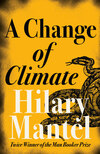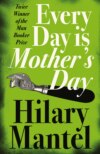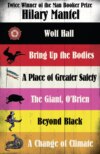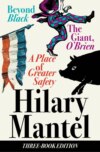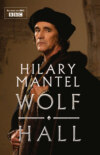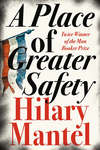Kitabı oku: «A Change of Climate», sayfa 5
They are going to the church. His grandfather will show him the angels in the roof, and the Pedlar of Swaffham carved on a stall end, and the pedlar’s dog with its round ears and big chain.
The Pedlar of Swaffham: John Chapman was his name. He dreamt one night that if he went to London, and stood on London Bridge, he would meet a man who would tell him how to make his fortune.
The day after this dream, Chapman put his pack on his back and with his dog set off to London. On London Bridge he stood about, until a shopkeeper asked him what he thought he was doing. ‘I’m here because of a dream,’ the pedlar said.
‘Dream?’ said the shopkeeper. ‘If I took any notice of dreams, I would be in some country place called Swaffham, in the garden of some yokel called Chapman, digging under his damn-fool pear tree.’ With a sneer, the fellow retreated to his merchandise.
John Chapman and his dog returned to Swaffham and dug under the pear tree. There they found a pot of gold. Around the pot ran an inscription. It said, ‘Under this pot is another, twice as good.’ The pedlar began digging again, and found a second crock: and now his fortune was made.
John Chapman gave candlesticks to the church, and rebuilt the north aisle when it fell down, and gave £120 to the steeple fund. His wife Cateryne and his dog were carved on the stalls, the wife with her rosary and the dog with his chain. John Chapman became a churchwarden, and wore an ermine gown.
But Ralph’s dreams? He has shelved them: packed away his specimens and consigned his maps and monographs to a space under the eaves of his father’s house in Norwich. He has consented to another kind of life from the life he had planned for himself. It happens to people at Ralph’s age, at twenty-five, you realize you are no longer the person you were, and will never become the person you meant to be. But he thinks, after all, there is a living to be made; there is a row to be hoed, and at least I am not a clergyman. He is serving God – a bit – and Mammon – a bit; his father’s friends say he has not committed himself, not wholly, and he knows he has very little money in the bank. He comforts himself that he understands something of the nature of life, of the nature of hidden things: at least, he has classifications for what lies beneath the surface, he has categories and terms.
From a jelly speck to man the line improves, edging nearer all the time to the summit of God’s design. As the species has evolved, the child in the womb grows, grows through its gills and its fur and becomes human. So society creeps forward, from savagery to benevolence: from cold and hunger and murder, to four walls and hearth stones and arts and parliaments and cures for diseases. At twenty-five Ralph believes this; he believes too in the complex perfectibility of the human heart.
FOUR
Lucy Moyo took a bunch of keys out of the pocket of her apron. She was six foot tall, imposing, solid, like a black bolster inside her print frock; the bunch of keys lay in her hand like a toy.
‘This is the key for your office,’ she said. She held it up. ‘These little ones are for your desks and cupboards. This is for the cupboard where we keep the first-aid chest. This one is for the chest itself. Friday nights, Saturdays, you will be wanting that. These keys are for the inside doors of your house. This one is for the pantry and these are for the store cupboards inside the pantry.’
‘Are they really necessary?’ Anna asked. ‘Every one?’
Lucy smiled remotely. ‘Mrs Eldred, you will find that they are. This key is for the woodshed where the tools are kept. The baas must be sure that anything to stab and cut, anything with a sharp edge, you understand me, is shown to him or to you or some good person at the end of the day when it has been used and then it is locked up till it is wanted again.’
Lucy pressed the keys into Anna’s palm. She folded Anna’s fingers over them. ‘You must keep all these doors locked. These people are thieves.’
Her own people, Anna thought. And how casually she says it. ‘Is Lucy a cynic?’ she asked later.
‘I don’t think we ought to criticize her,’ Ralph said. ‘She’s kept the place ticking over.’ His hands moved over his desk, bewildered, flinching. ‘She probably knows what she’s talking about. It’s just the way she puts things, it’s a bit bald.’
Lucy said, ‘Mr and Mrs Standish, who were here before you, used to sit after their supper most nights and cry. It made me sad to see such old people crying.’
The voyage to Cape Town had taken three weeks. It had allowed Anna a pause for thought, a period of grace. Until the last year of her life, nothing had happened. Then everything had happened together. When she was thirteen or fourteen, she had made up her mind to go to a foreign country: preferably a distant one. Her idea was that she would say goodbye to her parents, and write to them twice a year.
Ralph understood her parents – which was a good thing, because of the time it saved. It would have been a lifetime’s work to explain them to someone who had been brought up in a different fashion. In families like yours and mine, Ralph said, it’s the girls who have the harder time. He knew, he said, what his sister had gone though. Anna reserved judgement. It seemed to her that Emma was not unduly marked by suffering.
The truth was that Emma frightened her; even her small-talk was inquisitorial, demanding, sarcastic. Without a word but with an impatient toss of her head, she implied that Anna was decorative but useless. At least, Anna took this to be the implication. Nothing could be less true. Her hands had never been idle.
Anyway, she was putting thousands of miles between herself and Emma. If she had stayed in Norfolk people would have expected them to be friends, they would always be saying, Anna and Emma, Emma and Anna. It was not a harmonious combination – not to her ear. As a child, it was true, she had sometimes wished for a sister. Any companions had to run through a parental censorship, an overview of their lives and antecedents. By the time a prospective friend was approved, the attraction had waned on both sides.
Her mother and father were shopkeepers, with the grocer’s habit of measuring out everything: especially their approval. Nothing is free; they stressed that. God has scales in which he weighs your inclinations against your actions, your needs against your desires. Pleasure is paid for in the coin of pain. Pay in the coin of faith, and God may return a measured quantity of mercy. Or then again, he may not.
Anna had been a great reader, as a child. Her parents gave her paper pamphlets, containing tales of black babies and Eskimos and how they came to Jesus. But what she liked were school stories, where the pupils lived away from home in a mansion by the sea, and played lacrosse and learned French from Mam’selle. Her parents said books were a good thing, but when they picked one up to inspect it – to permit or not permit – their faces expressed suspicion and latent hostility.
They eschewed the cinema and the theatre – they did not forbid them, but they knew how to make their views known. No alcohol passed their lips. Women who wore make-up – at least, any more than a smear of tan face-powder – were not their sort. Mr Martin looked at the newspaper, so his wife did not need to bother. She received each day a used opinion from him, just as she received a shirt for laundering, tainted with the smell of smoked bacon and ripe cheese.
Later, when she grew up, Anna realized that her parents were afflicted not simply by godliness, but by social snobbery. It seemed difficult for them to distinguish between the two. They looked up to those customers with big houses, to whom each week they delivered straw-packed boxes containing glacé fruits and tiny jars of chicken breasts in nutritious jelly. They looked down on ordinary customers, who queued in the shop for bags of sugar and quarters of tea. The former paid on account; of the latter, they naturally demanded cash. They were among the first in their district to get the ingenious, time-saving, pre-printed notice, which encapsulated so neatly their philosophy of life:
PLEASE DO NOT ASK FOR CREDIT, AS A REFUSAL OFTEN OFFENDS
All through her teens, Anna had been tormented by this notice, and by this thought: what if I fall in love, what if I fall in love with someone unsuitable? She knew the chances of this were high; there were so many unsuitable people in the world. But when she came home and said that Ralph Eldred wanted her to get engaged, the Martins looked in vain for a reason to oppose it. It was true that the boy’s future was unsettled; but then, his father was a county councillor.
Anna had been a compliant daughter. She had tried to do everything she could to suit her parents, while knowing that it would not be quite enough: please do not ask for credit…Some unhappy children have fantasies that they are adopted; Anna always knew she was theirs. In adolescence, she fell into reveries, irritating to the people about her, productive of sharp words from her mother. She dreamed of ways of being as unlike her parents as possible. But she didn’t know any ways. To despise them was one thing; to free herself from them was quite another.
And she wondered, now, as the ship moved south, whether she was sailing away from them or towards them. After all, they were such charitable people; weren’t they, in their own way, missionaries at home? There were no luxuries in their household; money was always needed for good causes. Besides, it was wicked to have luxuries when others had not the necessities: unless you were an account customer, of course.
And if the charity did not proceed from love, but from a sense of duty, did that matter? Were the results not the same?
Anna used to think so. The starving eat, whatever the motive of the bread’s donor; perhaps it does not become the starving to be nice about motives.
Ralph saw the issue differently. The Eldreds and the Martins, he said, acted from a desire to make the world conformable. Grocer Martin would like to raise all tramps to the condition of account customers; Betty the grocer’s wife would like to see chain-smoking unmarried mothers scrub their faces and take communion monthly. Cold, poverty, hunger must be remedied because they are extreme states, productive of disorder, of psychic convulsions, of demonstrations by the unemployed. They lead to socialism, and make the streets unsafe.
Ralph passed judgement on his father, and on hers. He knew a poem; he would laugh, and say:
‘God made the wicked Grocer For a mystery and a sign.
That men might shun the awful shops And go to inns to dine.’
There it was – Ralph hated nothing more than meanness. It seemed to her that he had a spontaneous, uncalculated kindness. She was looking for no more and no less. She slept with him before – just before – the engagement ring was on her finger.
It was she who had made him the offer. When the time came – the one occasion, perhaps in a year, when they had the house at Dereham to themselves – she was seized by fear. Even the touch of his warm hands made her shiver. But he was a young man with little experience – or none, as she supposed – so perhaps the difference between terror and passion was not readily apparent to him.
After the deed was done, she worried a good deal about whether she might be pregnant. She thought of praying not to be, but she did not think she would have God’s ear. And besides, in the one way, disgrace would have delivered her. ‘I’ll look after you,’ Ralph had said. ‘If that happened, we’d just bring the wedding forward.’ When her period came – four days late, late enough to put her into a daze of panic and hope – she leaned against the freezing wall of her parents’ bathroom, against the hostile dark-green paint, and cried over the chance lost.
After this she seemed to lose her equilibrium; she had not thought of herself as a complicated person, but now all sorts of wishes and fears were fighting inside her head. Ralph suggested that they should bring the wedding forward anyway; marry as soon as she left her teacher-training college, not wait until the end of the summer. Uncle James came to meet her parents, and talked about this very interesting post that was going in Dar-es-Salaam.
Her mother thought that the climate might be unsuitable, but conceded that Anna had never had a day’s illness and had not been brought up to be a shirker. Betty thought, further, that the natives might not be nice. But what surprised Anna was how easily they fell in with James’ suggestion, how quickly they agreed that though the engagement had been unusually short the marriage might as well be in June. For the first time it occurred to her that they might be glad to have her off their hands. Think of the expenditure of emotion a daughter entails! With their daughter married, and at the other side of the world, they would have more energy for the affairs of strangers.
Of course there was something improbable, even hilarious, about the idea of being a missionary in Africa. She said, ‘I won’t have to wear a sola topi, will I? And be boiled in a pot?’
Ralph said, ‘I don’t think so. Uncle James has never been boiled. Not so far, anyway.’
Then Ralph came to her with the change of plan. If she agreed, they were not to go to East Africa at all. A job was waiting for them elsewhere, in a township called Elim. It was near Johannesburg, north of the city – not far from Pretoria either, he said, as if that would help her place it. He brought a book, newly published, called Naught for Your Comfort. If she would read it, he suggested, she would know why people were needed and why perhaps if they valued their own comfort they ought not to go. Then she could weigh up the options, think what was best for them. ‘And best for other people, of course,’ she said. At that time – the spring of 1956 – she could say such a thing with no ironical intent.
She read the book at once. It painted a picture of a hungry, bloody, barely comprehensible world. She felt ready to enter it. She did not know what use she could be, but Ralph seemed to think their work was cut out for them. And after all, comfort had never been one of her expectations.
She had dreamt about the book too, those last nights before they left England. The dreams seemed to heighten but not betray the text. Policemen strutted in the streets with machine-guns. Acts of Parliament were posted up on every street. The populace was cowed.
When she woke, she shuttled these nightmares out of her head. For one thing, the dream-streets of Elim were too much like the streets of East Dereham. For another thing, they had to jostle for space in her imagination with the images already there: missionaries’ tales and childhood geography texts, smudgy photographs of mean proportions; women with their teeth filed sharp, men with cicatrized cheeks. Some other part of Africa, no doubt. Some other time. Still she imagined savannah, long horizons, thatched rondavels standing in kraals: a population simply religious, hymn-singing, tractable. In real life, she had almost never seen a black man.
Ralph had said to Uncle James, ‘I hardly think my work at the hostel is going to have prepared me for Africa.’
Uncle James had said cheerfully, ‘Don’t worry. Nothing could prepare you for Africa.’
Her mother had given her a book called The Sun-Drenched Veld. She could read it on the ship, Betty advised. ‘One of the Windows on the World series, Anna. It cost 9/6.’ She picked it up on the day they quit Las Palmas, flicking its pages as they moved through waters where flying fish leapt.
It bore little resemblance to Father Huddleston’s text; but no doubt it was true, in its way. ‘In descriptions of African wildlife the zebra is often mentioned only in passing. Yet he is a lovely creature; a compact, sturdy little horse with neat mane and flowing tail. And no two of his kind are patterned alike! Having drawn his outline you can paint in the stripes as you please.’
When the sea made her dreamy, unable to concentrate, she gave up on the text, let the book close in her lap and rested her eyes on its cover. It beckoned the reader through arches of the coolest, palest peppermint, into an other-worldly landscape – pink and gold in the foreground, green hills rising in the middle ground and beyond them the lilac haze of mountains. She wondered if the illustrator had confused it with heaven; got his commissions mixed up, perhaps. But then she remembered a book she had seen on Ralph’s shelves – a book from his years as a fossil-hunter. The picture on the cover was much the same – strange, impossible colours. She had turned to the inside flap to see what was represented: On the shores of a Jurassic lagoon, the caption said. Amid the startling viridescence of the palms, Archaeopteryx flopped and swooped, feathers glowing with the deep autumn tints of a game bird. A little dinosaur, glinting like steel, scurried on spindle legs. The sky was a delicate eggshell. In the background shone a deeper aqueous blue-green – some vast and primitive ocean, with shores that had never been mapped.
But now, how small the sea appeared: a metallic dish, across which they inched. After dark the people who were sailing home stood at the rail, looking for the Southern Cross. And one night it appeared, lying just off-south, exactly where everyone had predicted it would be. Anna saw four dull points of light, pale, hardly distinguishable from the meagre scattering of stars around. She would not have noticed it, she thought, if it had not been pointed out.
They came into Table Bay in the rain, in drizzle and cloud which lifted from moment to moment, then descended again. Through the murk a solid dark mass became visible. ‘Table Mountain,’ someone told her. A pancake of grey cloud lay over it. The sun broke through, gleamed, was gone – then sent out another searching ray, like an arm reaching into a tent. She could see the contours of the mountain now – its spines of rock, and the ravines and crevices steeped in violet shadow.
What had she expected? Some kind of municipal hill. ‘Look there,’ a man said. ‘That’s Devil’s Peak.’ The cloud was moving now, billowing, parting. The sun was fighting through. The stranger took her arm, and turned her body so that she saw a wisp of cloud, like smoke, rising into the sky.
The Archbishop of Cape Town said, ‘You’re not like your Uncle James. You’re more of a muscular Christian.’
‘Oh, James,’ Ralph said. ‘No, he’s never looked strong.’
‘But he has endured,’ the archbishop said. He seemed to relish the phrase. It gave a heroic quality to James’ life. Which, Ralph supposed, it really did possess. From some points of view.
He wished he could have avoided this interview. They did not merit a prelate; only James’ letter of introduction had brought them here. They could have gone straight to Johannesburg by rail, and on to Elim. They could have been briefed by an underling from the Pretoria diocese. Or not briefed at all. Frankly, Ralph had expected he would have to muddle through. It was the usual way.
‘I wanted James here with me,’ the archbishop said. ‘Some seven years ago. When I was raised to this – ah – dignity. We had here, at that time, everything one could require. Churches, schools, hospitals, clubs. We had the money and the men. We had the blessed opportunity of leadership. Well, perhaps James saw what would come of it. I cannot claim I did.’
The archbishop limped across the room, setting up little vibrations in the furniture, making the tea-cups tremble. He was a vast, heavy man, seventy years old or perhaps more. He handed himself to a sofa; grunting with effort and pain as he lowered himself, he manoeuvred his stiff leg and propped it on cushions as if it were a false limb, or as if it belonged to someone else. It was a moment before he spoke again. ‘We set out with high ideals,’ he said. ‘The things we wanted have not happened. Well, there was no promise that they would.’
The archbishop seemed shy. Could an archbishop be shy? He spoke gruffly, in short, broken phrases; the phrases were, none the less, well-planned.
‘A year before I was enthroned,’ he said, ‘the electorate threw out Smuts and put the Nationalists in. Then certain laws were enacted, which I presume you know everything about – or if you do not, you will know shortly. You will learn the theory. You will see the practice. You will see that we have come, in effect, to be a police state.’ He broke off, waiting for Ralph’s reaction. ‘Oh, be sure I did not always talk in this fashion. I gave the elected government what leeway I could, for one tries to play the statesman. I understood the machinery of their laws, but I did not know how they would operate it.’
‘Apartheid is hard to believe in,’ Ralph said. ‘I mean, you’d have to see it to believe it.’
The archbishop grunted. ‘Separateness, they used to say. It is the change of language that is significant – it is rather more than the evolution of a term. But I said to myself, when Daniel Malan came in, he is not an oaf. He is a cultured man. He has a doctorate,’ the archbishop broke off and gave a short laugh, ‘which he got from the University of Utrecht, with a thesis on Bishop Berkeley. Malan has still some regard for public opinion, I told myself. Then behold, out goes Malan, in comes Strydom, who as you may know was at one time an ostrich farmer. Educated where? Stellenbosch and Pretoria. He is a man from the Transvaal. You will learn what that means. When J. G. Strydom came in I had my moment of despair. That was three years ago now.’
Anna made a tentative movement, in the direction of the tea tray. The archbishop nodded to her, then turned and addressed himself to Ralph.
‘You have heard of the Bantu Education Act. They have put you in the picture in London, I hope. You know our preeminence in education; the churches have done everything, the government nothing. It is we who have educated the African. We did not know, when we were doing it, that we were going about to embarrass the government. All we have achieved, as they see it, is to create a threat to them. By this Act they mean to remove the threat.’
‘I find it difficult to get my mind around it, I suppose,’ Ralph said. ‘Education is progress, would you not think, it is civilization? I can’t imagine that any government in the history of the world, until now, has set out to make time run backwards.’
‘Oh, I don’t know,’ the archbishop said. ‘There would be some. It doesn’t do to generalize. But you see why they’ve done it, don’t you? Education for the non-Europeans is now put into the hands of Dr Verwoerd, at the Native Affairs Department. Dr Verwoerd’s reasoning is, what is the use of teaching mathematics to an African child? A labourer doesn’t need mathematics. Give him mathematics, he will begin to think he might try to be a little more than a labourer. Well, Dr Verwoerd would not want him to make that mistake.’
Anna brought the tea. The archbishop tested it. ‘Very good, my dear,’ he said, ‘Such a pleasure, tea, isn’t it?’ He looked, Anna thought, as if his pleasures were few. She melted away, back to her tapestry stool.
‘The notion is to bring in a new kind of education,’ the archbishop said, looking into his cup. ‘An education to create coolies and houseboys and fodder for the mines. Two and a half hours a day, taught by little girls who have scraped through their Standard VI. This is not merely the prescription for the children of the illiterate, this is for all – for the children of our brightest mission boys and girls, for the children of university graduates from Fort Hare. The parents have to contain themselves in patience while they see their children stultified.’
‘It seems to cut off hope for the future,’ Ralph said. ‘You can repeal other laws, but how will you undo the effect of this one?’
‘Precisely,’ the archbishop said. ‘In twenty years’ time, or in forty years’ time, when this idiocy is over, how will you put wisdom into heads that have been deprived of it?’
The archbishop’s hand shook a little now. The tea-cup seemed to be too much for him, as a delicate piece of china might be too much for a bear. Anna darted forward, took the cup, returned it to the tray. He did not appear to notice her.
‘And so now, how are the churches situated?’ The old man turned his head towards Ralph. ‘We sit before the government “like the rabbit before the cobra”, as Father Huddleston has so memorably expressed it.’ His voice was dry. ‘Father Huddleston has a gift for the vivid phrase, has he not? Some people say we should close all our schools rather than take part in this fantastic scheme. Others say that any education is better than none. Father Huddleston, if I may quote again, calls that sentiment “the voice of Vichy”. Mrs Eldred,’ he turned his head again, stiffly and painfully, ‘although you are a trained teacher, you will find yourself engaged in amusing children rather than teaching them. We have to try to get them off the streets, where they will get into trouble. This place, you know, Elim – well, it is not in my cure, but I can tell you something of what to expect. Elim is what they call a freehold township. Africans have been settled there since the turn of the century. They have built houses, they own them. Generations have grown up in Elim. There would be, I don’t know, 50,000 people?’
‘About that,’ Ralph said.
‘And now there is no security any more, no guarantee of what succeeding years will bring. They are knocking down Sophiatown, and Elim may be next.’
‘Where will they put the people?’ Anna said.
‘Ah, this is the essence of the apartheid policy, my dear. The government wishes to return them to their tribal areas.’ Turning his head again, he spoke with grave, weary courtesy, as if he were addressing the President himself, and giving him all the credit he could muster for a foolish scheme. ‘Well, you will grasp the situation better when you arrive there. But you must understand that for the people you are going to live among everything has become hazardous, impermanent. It is hardly possible for them to step out of doors without wondering if they are falling foul of some new law. And they feel that their futures have been taken away.’
‘I hardly feel equal to it,’ Ralph said. ‘To such a situation.’
‘Then why did you come?’
He didn’t know what to say. He couldn’t say, to get away from my family. ‘I thought it was my duty to try to do something. We both thought so. But we have so little experience.’
‘Oh, you have youth,’ the archbishop said, ‘therefore you have resilience. That is the pious hope, at least. May I advise you? In your work, try to relate everything to God. Try to work on the scale of eternity. Do you see? Otherwise you will be fettered by trivia. The daily frustrations will cripple you.’
‘That seems excellent advice,’ Ralph said. ‘Good advice in any circumstances. If one could follow it.’
Anna said, ‘If I were a black person in this country, I’m not sure I would believe in God. Particularly.’
The archbishop frowned.
Ralph said, ‘People may think that when they are so oppressed, when they are told that their nature is somehow inferior, when they have suffered so many misfortunes, that they no longer matter to God. It would be a natural thing for them to think.’
At this the archbishop gave vent to his sentiments, in short bursts of rhetoric, like barks. He referred to ‘feeble secular humanism’ (which he supposed to be a temptation to Ralph) and to the Christian faith as ‘the charter of man’s greatness’. It was clear that these were phrases from a sermon he was writing, or from one which he had already delivered. Anna looked sideways at Ralph, from under her eyelashes. She didn’t know how either of them had dared say what they had said. They would do anything, she supposed, now that they were so far from home.
When the archbishop had finished barking, she put in a feeble, conciliatory word. It was only that they were inexperienced, she said. They were apprehensive – here in a new country, in their first real jobs.
‘Do you also not feel equal to it?’ the archbishop inquired.
‘I am not sure anyone could be.’
This was a good answer. ‘Well, I know I am not,’ the archbishop said. ‘There are two things – no, three things – I ask of you, particularly. Try not to despise your opponents; try not to hate them. It will probably be quite difficult for you, but for a Christian the effort is necessary. And try not to break the law. You have not been sent here to get yourselves into the newspapers or the magistrate’s court. I hope you can remember that.’
‘The third thing?’ Ralph said.
‘Oh yes. When you write home to England, ask your people not to make hasty judgements. It is a complicated country, this. I comfort myself that there is little real wickedness in it. But there is so much fear, fear on all sides. Fear paralyses the sympathies, and the power of reasoning. So it becomes a kind of wickedness, in the end.’ The archbishop looked up, nodded. The interview was over. They rose. Unexpectedly he smiled, and patted at his leg, lying before him painful and inert. ‘Do you know what I did last year? I went to Tristan da Cunha. I expect you did not know my diocese ran so far. They had to tie me into a chair and run me down the side of the frigate on ropes. Then I had to lie in a little boat with a canvas bottom, and they paddled me ashore. Your Uncle James wouldn’t have believed his eyes. But you know, I don’t think I’ll go again. I hardly think I’d weather it, do you?’
He didn’t expect an answer. A secretary ushered them out. He was picking up papers to read as they left the room.
Ücretsiz ön izlemeyi tamamladınız.
